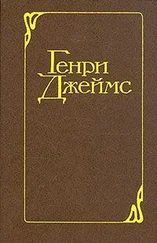Генри Джеймс - Hawthorne
Здесь есть возможность читать онлайн «Генри Джеймс - Hawthorne» — ознакомительный отрывок электронной книги совершенно бесплатно, а после прочтения отрывка купить полную версию. В некоторых случаях можно слушать аудио, скачать через торрент в формате fb2 и присутствует краткое содержание. Жанр: Биографии и Мемуары, literature_19, foreign_antique, на английском языке. Описание произведения, (предисловие) а так же отзывы посетителей доступны на портале библиотеки ЛибКат.
- Название:Hawthorne
- Автор:
- Жанр:
- Год:неизвестен
- ISBN:нет данных
- Рейтинг книги:4 / 5. Голосов: 1
-
Избранное:Добавить в избранное
- Отзывы:
-
Ваша оценка:
- 80
- 1
- 2
- 3
- 4
- 5
Hawthorne: краткое содержание, описание и аннотация
Предлагаем к чтению аннотацию, описание, краткое содержание или предисловие (зависит от того, что написал сам автор книги «Hawthorne»). Если вы не нашли необходимую информацию о книге — напишите в комментариях, мы постараемся отыскать её.
Hawthorne — читать онлайн ознакомительный отрывок
Ниже представлен текст книги, разбитый по страницам. Система сохранения места последней прочитанной страницы, позволяет с удобством читать онлайн бесплатно книгу «Hawthorne», без необходимости каждый раз заново искать на чём Вы остановились. Поставьте закладку, и сможете в любой момент перейти на страницу, на которой закончили чтение.
Интервал:
Закладка:
Henry James
Hawthorne / (English Men of Letters Series)
CHAPTER I.
EARLY YEARS
It will be necessary, for several reasons, to give this short sketch the form rather of a critical essay than of a biography. The data for a life of Nathaniel Hawthorne are the reverse of copious, and even if they were abundant they would serve but in a limited measure the purpose of the biographer. Hawthorne's career was probably as tranquil and uneventful a one as ever fell to the lot of a man of letters; it was almost strikingly deficient in incident, in what may be called the dramatic quality. Few men of equal genius and of equal eminence can have led on the whole a simpler life. His six volumes of Note-Books illustrate this simplicity; they are a sort of monument to an unagitated fortune. Hawthorne's career had few vicissitudes or variations; it was passed for the most part in a small and homogeneous society, in a provincial, rural community; it had few perceptible points of contact with what is called the world, with public events, with the manners of his time, even with the life of his neighbours. Its literary incidents are not numerous. He produced, in quantity, but little. His works consist of four novels and the fragment of another, five volumes of short tales, a collection of sketches, and a couple of story-books for children. And yet some account of the man and the writer is well worth giving. Whatever may have been Hawthorne's private lot, he has the importance of being the most beautiful and most eminent representative of a literature. The importance of the literature may be questioned, but at any rate, in the field of letters, Hawthorne is the most valuable example of the American genius. That genius has not, as a whole, been literary; but Hawthorne was on his limited scale a master of expression. He is the writer to whom his countrymen most confidently point when they wish to make a claim to have enriched the mother-tongue, and, judging from present appearances, he will long occupy this honourable position. If there is something very fortunate for him in the way that he borrows an added relief from the absence of competitors in his own line and from the general flatness of the literary field that surrounds him, there is also, to a spectator, something almost touching in his situation. He was so modest and delicate a genius that we may fancy him appealing from the lonely honour of a representative attitude—perceiving a painful incongruity between his imponderable literary baggage and the large conditions of American life. Hawthorne on the one side is so subtle and slender and unpretending, and the American world on the other is so vast and various and substantial, that it might seem to the author of The Scarlet Letter and the Mosses from an Old Manse , that we render him a poor service in contrasting his proportions with those of a great civilization. But our author must accept the awkward as well as the graceful side of his fame; for he has the advantage of pointing a valuable moral. This moral is that the flower of art blooms only where the soil is deep, that it takes a great deal of history to produce a little literature, that it needs a complex social machinery to set a writer in motion. American civilization has hitherto had other things to do than to produce flowers, and before giving birth to writers it has wisely occupied itself with providing something for them to write about. Three or four beautiful talents of trans-Atlantic growth are the sum of what the world usually recognises, and in this modest nosegay the genius of Hawthorne is admitted to have the rarest and sweetest fragrance.
His very simplicity has been in his favour; it has helped him to appear complete and homogeneous. To talk of his being national would be to force the note and make a mistake of proportion; but he is, in spite of the absence of the realistic quality, intensely and vividly local. Out of the soil of New England he sprang—in a crevice of that immitigable granite he sprouted and bloomed. Half of the interest that he possesses for an American reader with any turn for analysis must reside in his latent New England savour; and I think it no more than just to say that whatever entertainment he may yield to those who know him at a distance, it is an almost indispensable condition of properly appreciating him to have received a personal impression of the manners, the morals, indeed of the very climate, of the great region of which the remarkable city of Boston is the metropolis. The cold, bright air of New England seems to blow through his pages, and these, in the opinion of many people, are the medium in which it is most agreeable to make the acquaintance of that tonic atmosphere. As to whether it is worth while to seek to know something of New England in order to extract a more intimate quality from The House of Seven Gables and The Blithedale Romance , I need not pronounce; but it is certain that a considerable observation of the society to which these productions were more directly addressed is a capital preparation for enjoying them. I have alluded to the absence in Hawthorne of that quality of realism which is now so much in fashion, an absence in regard to which there will of course be more to say; and yet I think I am not fanciful in saying that he testifies to the sentiments of the society in which he flourished almost as pertinently (proportions observed) as Balzac and some of his descendants—MM. Flaubert and Zola—testify to the manners and morals of the French people. He was not a man with a literary theory; he was guiltless of a system, and I am not sure that he had ever heard of Realism, this remarkable compound having (although it was invented some time earlier) come into general use only since his death. He had certainly not proposed to himself to give an account of the social idiosyncrasies of his fellow-citizens, for his touch on such points is always light and vague, he has none of the apparatus of an historian, and his shadowy style of portraiture never suggests a rigid standard of accuracy. Nevertheless he virtually offers the most vivid reflection of New England life that has found its way into literature. His value in this respect is not diminished by the fact that he has not attempted to portray the usual Yankee of comedy, and that he has been almost culpably indifferent to his opportunities for commemorating the variations of colloquial English that may be observed in the New World. His characters do not express themselves in the dialect of the Biglow Papers —their language indeed is apt to be too elegant, too delicate. They are not portraits of actual types, and in their phraseology there is nothing imitative. But none the less, Hawthorne's work savours thoroughly of the local soil—it is redolent of the social system in which he had his being.
This could hardly fail to be the case, when the man himself was so deeply rooted in the soil. Hawthorne sprang from the primitive New England stock; he had a very definite and conspicuous pedigree. He was born at Salem, Massachusetts, on the 4th of July, 1804, and his birthday was the great American festival, the anniversary of the Declaration of national Independence. [1] It is proper that before I go further I should acknowledge my large obligations to the only biography of our author, of any considerable length, that has been written—the little volume entitled A Study of Hawthorne , by Mr. George Parsons Lathrop, the son-in-law of the subject of the work. (Boston, 1876.) To this ingenious and sympathetic sketch, in which the author has taken great pains to collect the more interesting facts of Hawthorne's life, I am greatly indebted. Mr. Lathrop's work is not pitched in the key which many another writer would have chosen, and his tone is not to my sense the truly critical one; but without the help afforded by his elaborate essay the present little volume could not have been prepared.
Интервал:
Закладка:
Похожие книги на «Hawthorne»
Представляем Вашему вниманию похожие книги на «Hawthorne» списком для выбора. Мы отобрали схожую по названию и смыслу литературу в надежде предоставить читателям больше вариантов отыскать новые, интересные, ещё непрочитанные произведения.
Обсуждение, отзывы о книге «Hawthorne» и просто собственные мнения читателей. Оставьте ваши комментарии, напишите, что Вы думаете о произведении, его смысле или главных героях. Укажите что конкретно понравилось, а что нет, и почему Вы так считаете.












